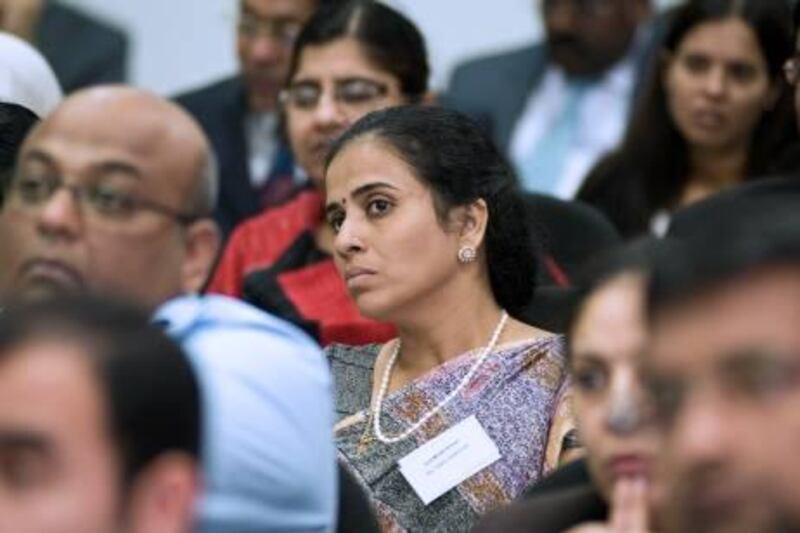DUBAI // More than 4,000 pupils at five Indian and Pakistani schools in Dubai are not receiving an acceptable education, inspectors said yesterday.
And none of the emirate's 24 Indian and Pakistani schools, which teach more than 60,000 children, ranks as outstanding, according to the latest report by the Dubai Schools Inspection Bureau.
DSIB inspectors evaluated the schools over two or three days between October and December of 2010, and placed them in four categories: outstanding, good, acceptable and unsatisfactory. Of the 21 Indian schools inspected, 11 were ranked good, seven acceptable and three unsatisfactory.
Three schools moved up one rank from when they were first inspected in 2009, and one new school was rated good.
The ranking of the three Pakistani schools stayed the same: two are unsatisfactory and one acceptable.
______________
[ See how your child's school rates ]
______________
"While these schools may have improved in one or two aspects, the pace is very slow," said DSIB chief Jameela al Muhairi. "A child has only one chance at education in a particular grade. They cannot wait for us to make the necessary changes and improvements."
The inspectors surveyed pupils, teachers and parents, assessed lesson plans and tested the pupils' level of knowledge uptake.
For the first time this year, schools were also rated on their accessibility to disabled students; none fared well.
“Too often schools refuse admission to children with special needs stating they do not have the resources” to meet unusual requirements, said Ms Muhairi. “This leaves them with limited choice and access.”
Among other issues identified for all pupils were large class sizes, limited access to computers and outdated teaching methods.
In Pakistani schools inspectors found that a lack of leadership and governance had caused standards to stagnate. Pupils were found to be underachieving and resources and facilities were limited.
The report also said little progress had been made by most schools in teaching Arabic.
However, Ms Muhairi noted an overall picture of development in Indian schools that had implemented revamped teaching methods, resulting in better results for pupils in English, mathematics and science.
Dr Mohammed Aslam Khan, principal of the New Indian Model School in Dubai, which retained its “acceptable” rating, said he was positive because the institution had made progress. In the year since its first inspection, the school implemented a continuous assessment model and students have shown progress in key subjects.
“The problem we face is that there is a high teacher turnover here,” he said. “That is a limitation because we have to constantly hold sessions to align new teachers to the requirements of the authority.”
Abdualla al Karam, director general of the Knowledge & Human Development Authority, said the inspections had helped to develop a sense of accountability among schools. He said schools had implemented new initiatives and were working with other schools to raise education levels, which would not have been the case a few years ago.
“We are seeing increased commitment from schools to do better and work on the recommendations,” he said.
One such example was Our Own Indian School in Dubai, which retained its overall good rating but boosted its Arabic-teaching rating from acceptable to good.
According to Amol Rao, head of the primary section, the improvement was achieved through a change in curriculum and teacher training.
“We now have a more hands-on approach to teaching and include more activities in our lessons,” she said. “Our strength this year has also been the introduction of more professional development courses for our teachers.”
aahmed@thenational.ae






